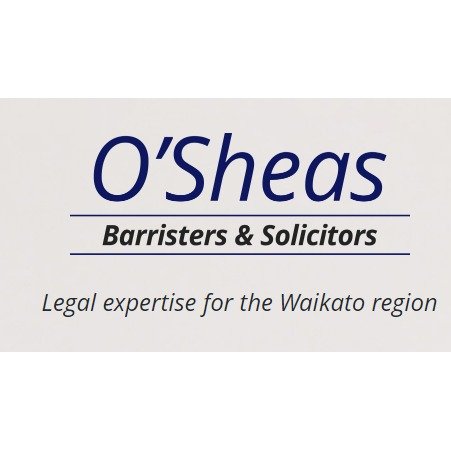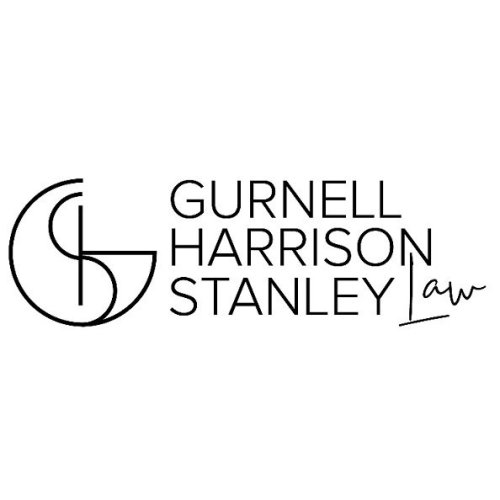Best Water Law Lawyers in Hamilton
Share your needs with us, get contacted by law firms.
Free. Takes 2 min.
List of the best lawyers in Hamilton, New Zealand
About Water Law in Hamilton, New Zealand
Water law in Hamilton, New Zealand, is a specialized area of legal practice focused on the regulation, use, management, and protection of water resources. This includes the allocation and quality of water from rivers, lakes, streams, and groundwater sources. Water law affects individuals, businesses, farmers, local authorities, and iwi, and is governed by both national legislation, such as the Resource Management Act 1991, and local rules implemented by the Waikato Regional Council. The goal is to balance human, environmental, and cultural needs while ensuring the sustainable management of water resources.
Why You May Need a Lawyer
There are many circumstances where seeking legal advice on water law in Hamilton is beneficial. Common situations include:
- Seeking permission or consents to take or use water for irrigation, industrial, or domestic purposes
- Dealing with disputes over water rights or allocation between landowners or neighboring properties
- Responding to allegations of water pollution or contamination
- Challenging or appealing a decision made by the council regarding water management
- Navigating changes to water rules affecting your business, farm, or property
- Understanding your obligations concerning waterway protection or restoration, especially near sensitive or protected areas
- Engaging in iwi consultations regarding water resources and rights
- Helping with water infrastructure projects, such as building dams, bores, or diversions
Local Laws Overview
In Hamilton, water law is largely shaped by national and regional legislation. The Resource Management Act 1991 (RMA) is the primary law governing water allocation, water quality, and land use effects on water. Key local aspects include:
- The Waikato Regional Council (WRC) manages water takes, permits, and the implementation of water quality standards in the Waikato region, which includes Hamilton
- Resource consents are required for activities such as extracting water, discharging wastewater, altering watercourses, or constructing near rivers and streams
- The Waikato Regional Plan sets out rules and guidelines for water use, allocation, and discharges specific to local catchments and zones
- Iwi rights and interests in water are recognized and must be considered in decision-making
- Protection of waterways, flood prevention, and water conservation are high priorities, with strict penalties for unlawful activities
Frequently Asked Questions
What is a resource consent and do I need one for using water?
A resource consent is formal permission from the council to carry out activities that could affect the environment, such as taking water from a river or stream. Most uses beyond household or stock drinking water require a resource consent.
Who manages water allocations in Hamilton?
The Waikato Regional Council is responsible for managing water allocations and issuing water permits in Hamilton and the wider Waikato region.
Can I build a bore on my property to access groundwater?
You may be able to build a bore, but a resource consent is typically required, especially if using more than permitted minor household use. You must also comply with local and regional rules regarding bores.
What happens if I pollute a stream or river?
Polluting a waterway is a serious offense. Legal action can be taken by the council, resulting in significant fines or penalties. Immediate containment and reporting are advised if this occurs.
Are there special rules for water use in rural and urban areas?
Yes, rules differ depending on whether your property is zoned rural or urban. Rural properties may have more scope for irrigation, whereas urban areas have stricter controls due to higher density and infrastructure.
How are Māori rights recognized in water law?
Māori, or iwi and hapū, have special recognition in water management, particularly regarding customary rights and Treaty of Waitangi obligations. Consultation is often required for projects affecting local waterways.
What is the process for appealing a council water decision?
You can appeal to the Environment Court if you disagree with a council decision on water matters, such as a declined consent. Appealing requires specific procedures and timelines, so legal advice is recommended.
What constitutes 'minor use' of water on my property?
Minor or permitted use usually covers domestic supply, stock drinking water, and firefighting. Exact volumes defined as minor use are specified in council plans; excessive use requires consent.
Can I divert a natural watercourse on my land?
Diverting a stream or waterway normally requires a resource consent and must not adversely impact the environment or neighboring properties.
Are there restrictions on building near streams or rivers in Hamilton?
Yes, setback requirements and special consent processes apply for building near water bodies to protect ecological values and manage flood risks. Check council regulations before planning any construction.
Additional Resources
Here are some useful resources and contacts related to water law in Hamilton:
- Waikato Regional Council - for information on resource consents, water allocation, and compliance
- Hamilton City Council - for urban water management policies and building consents
- Ministry for the Environment - provides guidance on New Zealand’s national water laws and the Resource Management Act
- Community Law Waikato - offers general advice for individuals on environmental and water law issues
- Environment Court of New Zealand - for appeal processes and case law
- Iwi authorities such as Waikato-Tainui - for advice on partnership and engagement regarding water management
Next Steps
If you require legal advice or assistance regarding water law in Hamilton, take the following steps:
- Identify your specific legal issue or question related to water use, allocation, or compliance
- Gather any relevant documents, such as council correspondence, consent applications, or site plans
- Contact a qualified local lawyer who has expertise in environmental or resource management law
- Consider reaching out to the Waikato Regional Council or the Hamilton City Council for initial guidance
- If your issue involves iwi interests, consult with the relevant iwi authority early in your process
- Take prompt action, especially if you have received any formal notice, infringement, or are facing deadlines
Lawzana helps you find the best lawyers and law firms in Hamilton through a curated and pre-screened list of qualified legal professionals. Our platform offers rankings and detailed profiles of attorneys and law firms, allowing you to compare based on practice areas, including Water Law, experience, and client feedback.
Each profile includes a description of the firm's areas of practice, client reviews, team members and partners, year of establishment, spoken languages, office locations, contact information, social media presence, and any published articles or resources. Most firms on our platform speak English and are experienced in both local and international legal matters.
Get a quote from top-rated law firms in Hamilton, New Zealand — quickly, securely, and without unnecessary hassle.
Disclaimer:
The information provided on this page is for general informational purposes only and does not constitute legal advice. While we strive to ensure the accuracy and relevance of the content, legal information may change over time, and interpretations of the law can vary. You should always consult with a qualified legal professional for advice specific to your situation.
We disclaim all liability for actions taken or not taken based on the content of this page. If you believe any information is incorrect or outdated, please contact us, and we will review and update it where appropriate.

















